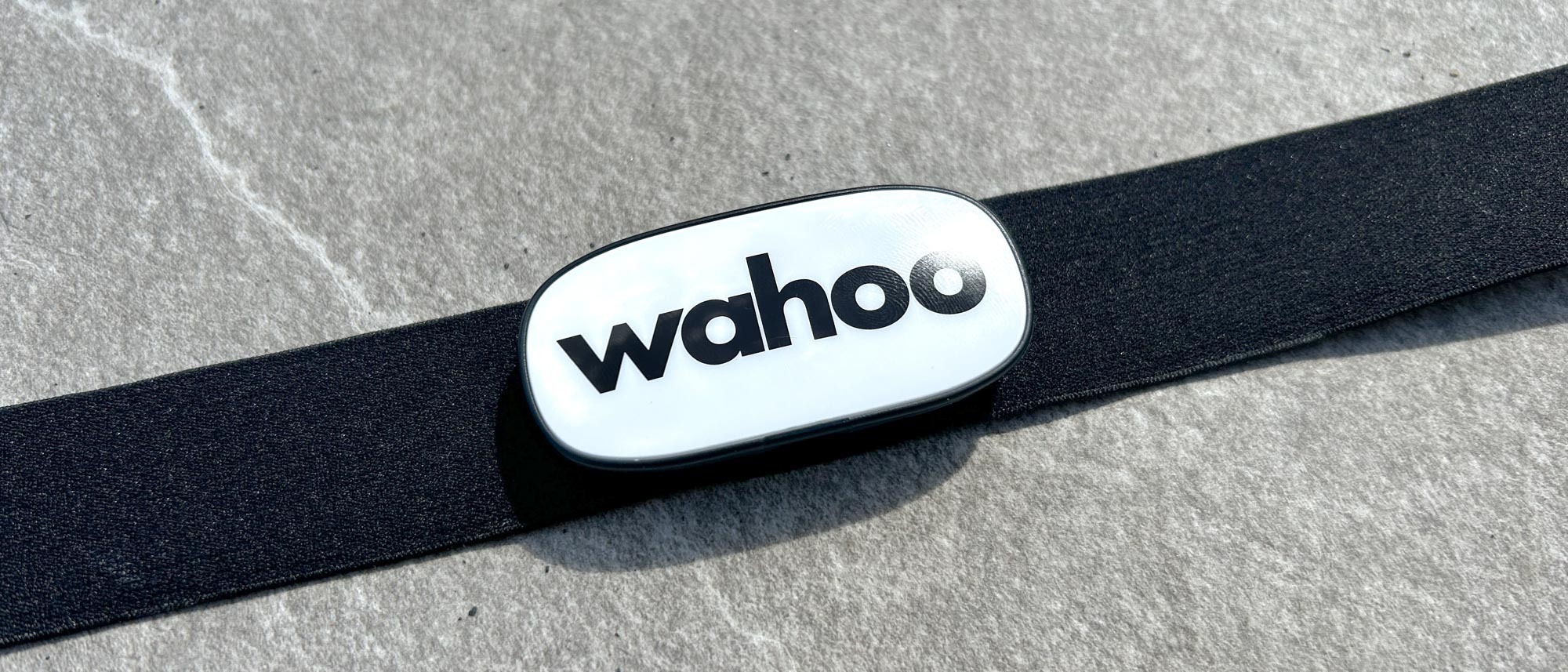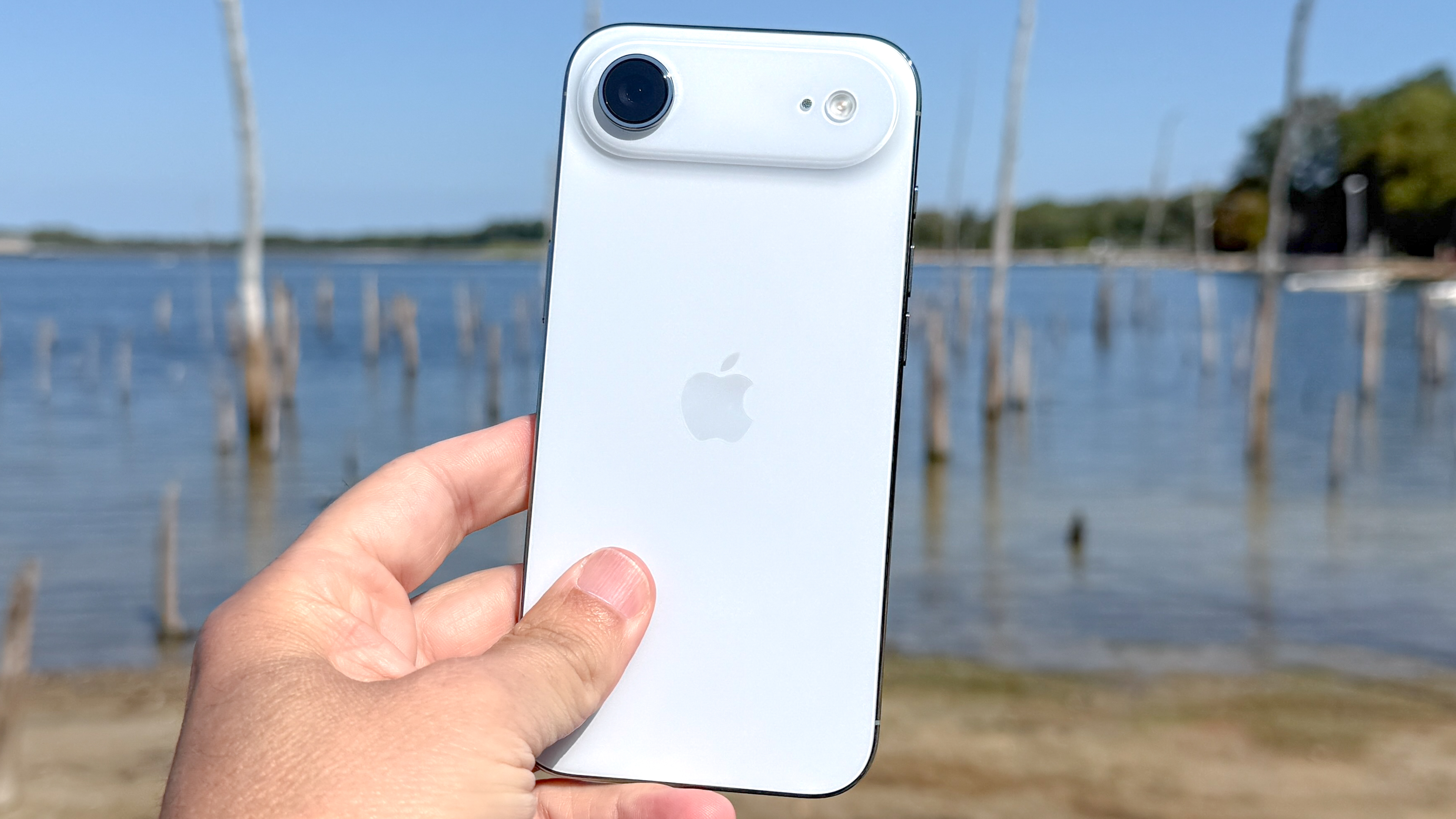Tom's Guide Verdict
The Wahoo TRACKR HEART RATE is the best rechargeable chest strap heart rate monitor for sports. It has a comfortable fit, long battery life, and produce reliably accurate throughout my testing. You can get more features and better value elsewhere, though, and it’s of little use to swimmers.
Pros
- +
Reliable performance
- +
Long battery life and rechargeable
- +
Comfortable for long workouts
Cons
- -
No on-board memory
- -
No extra running metrics
Why you can trust Tom's Guide
The Wahoo TRACKR HEART RATE is the first rechargeable chest strap heart rate monitor (HRM) from Wahoo. It replaces the TICKR and TICKR X straps in the brand’s lineup.
Despite moving away from a coin battery, the battery life on the Wahoo TRACKR HEART RATE is still outstanding, and its accuracy has been spot on for me during workouts when compared with a Polar H10 strap. Chest strap HRMs are more reliable than the optical heart rate tracking on even the best fitness trackers.
For the essentials of heart rate tracking for sports, I can’t fault the Wahoo TRACKR HEART RATE, but it does offer fewer features than other straps. Most notably, it lacks on-board memory which you need for swimming workouts.
There are also better value rechargeable straps available from brands like Coospo, and you can get excellent coin battery powered straps like the Polar H9 for less as well.
Wahoo TRACKR review: price and availability
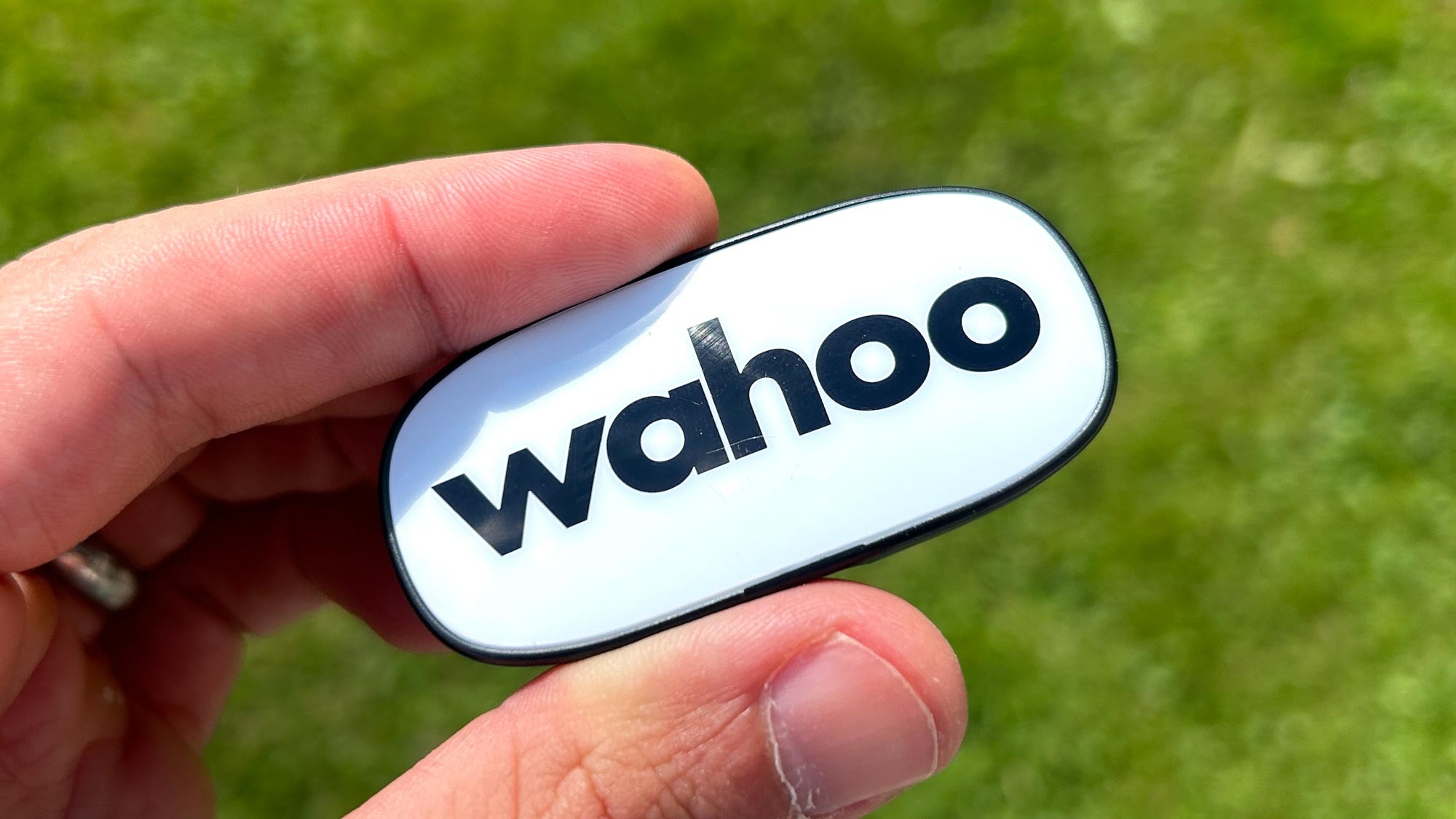
The Wahoo TRACKR HEART RATE launched June 25 and costs $89.99 in the US and £79.99 in the UK. That undercuts the price of the top Garmin and Polar heart rate monitors — the Garmin HRM-Pro Plus and Polar H10, respectively. That said, you can find cheaper HRMs from those brands, like the Garmin HRM-Fit which retails for $150.
Wahoo TRACKR HEART RATE review: design
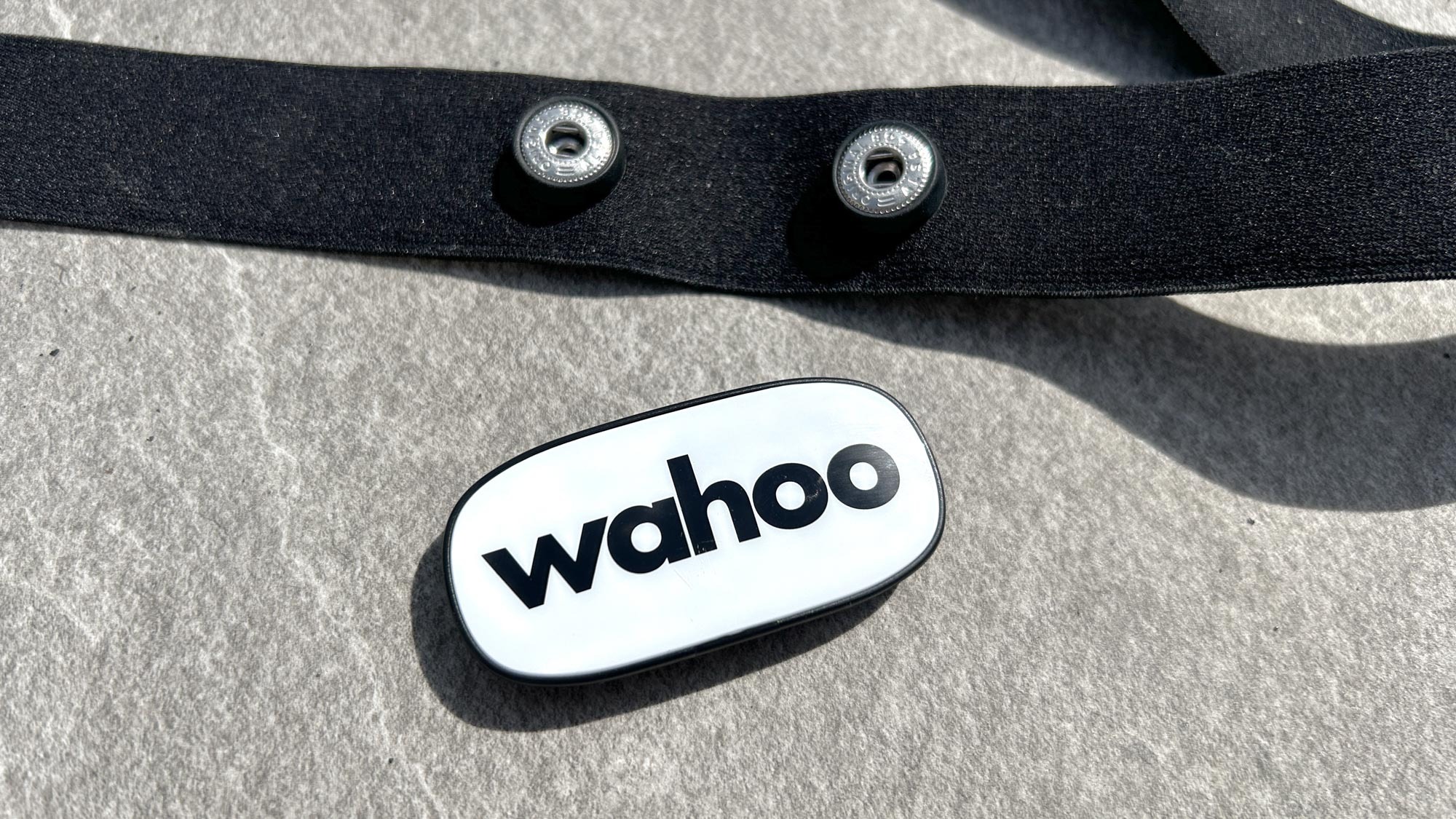
The Wahoo TRACKR HEART RATE is a small and lightweight (11g) pod that attaches to a slim, stretchy chest strap. The strap length is adjustable between 26.25 and 34.5 inches, and fits up to 50-inch chests. It’s fastened using a hook and loop.
With an IPX7 rating, the Wahoo TRACKR HEART RATE is waterproof and can be submerged in water up to 1 meter deep for 30 minutes, so it will easily withstand any sweat or rain it encounters during your workouts. It is not designed for swimming though, because it doesn’t have on-board memory to store your workout data in the water.
Get instant access to breaking news, the hottest reviews, great deals and helpful tips.
Instead of a coin battery, the TRACKR HEART RATE has a rechargeable lithium-ion battery, which helps with durability as the design of the pod is now completely closed. The magnetic charger is attached to a port on the outside of the TRACKR, so you don’t risk any damage by having to lift a flap to replace a battery.
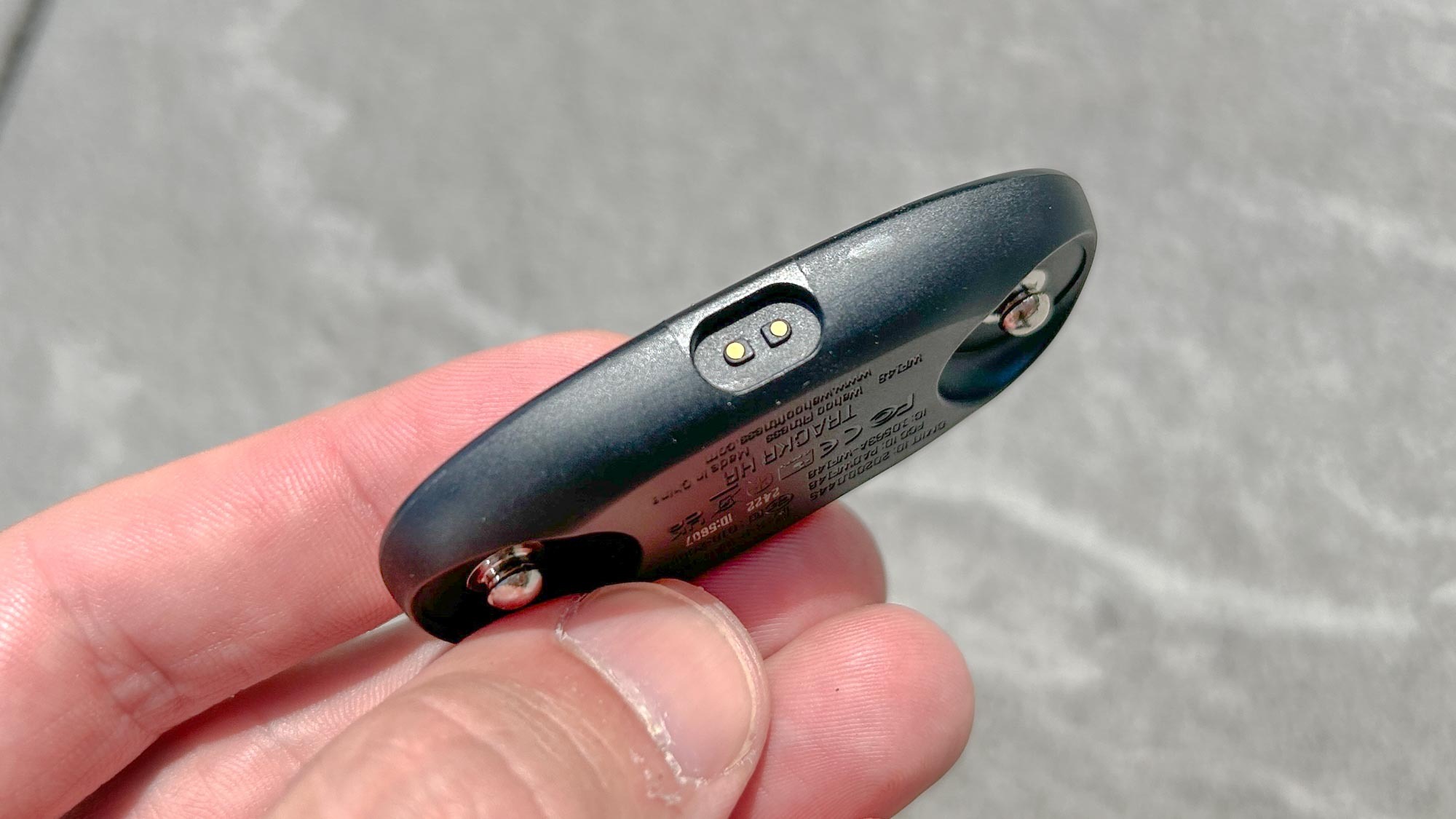
The Wahoo TRACKR HEART RATE connects to devices via both Bluetooth and ANT+. During my testing, I was able to connect it to several watches including the Apple Watch Ultra 2, Coros Pace 3 and Garmin Forerunner 965 without any problems, and it also easily linked up with apps on my phone.
An LED light on the pod flashes blue while connecting to devices, then goes a solid blue when connected. It also shows the battery status of the TRACKR HEART RATE when plugged into a charge, with a flashing red light when charge is low, yellow/orange when the battery is at 25-50%, green over 50% and then solid green when at 100%.
Wahoo TRACKR HEART RATE review: sports tracking
Since it has no onboard memory, you need to connect the Wahoo TRACKR HEART RATE to another device during workouts to record the heart rate data it tracks. This is why it’s no use to swimmers, as Bluetooth signals don't travel well in water.
I used the TRACKR HEART RATE to record several runs, a couple of bike rides and a strength session. For the most part I also wore a Polar H10 chest strap heart rate monitor during these training sessions, connected to a second watch, so I could compare the readings of the two chest straps both during and after the workouts.
The Polar H10 is a very reliable heart rate monitor that has proved accurate for me across years of testing, and I found that the Wahoo TRACKR HEART RATE matched it beat for beat with its recordings, even during challenging interval workouts where my heart rate spiked and dropped rapidly.
I have no concerns about the consistency of the TRACKR HEART RATE then, and it was also a comfortable chest strap to wear for lengthy workouts, with my longest session using it being just over 2 hours. It didn’t irritate my skin, and the strap stayed securely in place even on hot days where I sweated profusely.
One area where the TRACKR HEART RATE loses out compared with other straps is extra running stats, like running power or technique stats like ground contact time. Some straps, like the Garmin HRM-Pro Plus can also be used to track your pace and distance during treadmill runs.
I don’t view these stats as essential, but along with the lack of on-board memory it does mean the TRACKR HEART RATE isn’t quite as feature-rich as the premium heart rate monitors you can get from other brands
Wahoo TRACKR HEART RATE review: Battery life
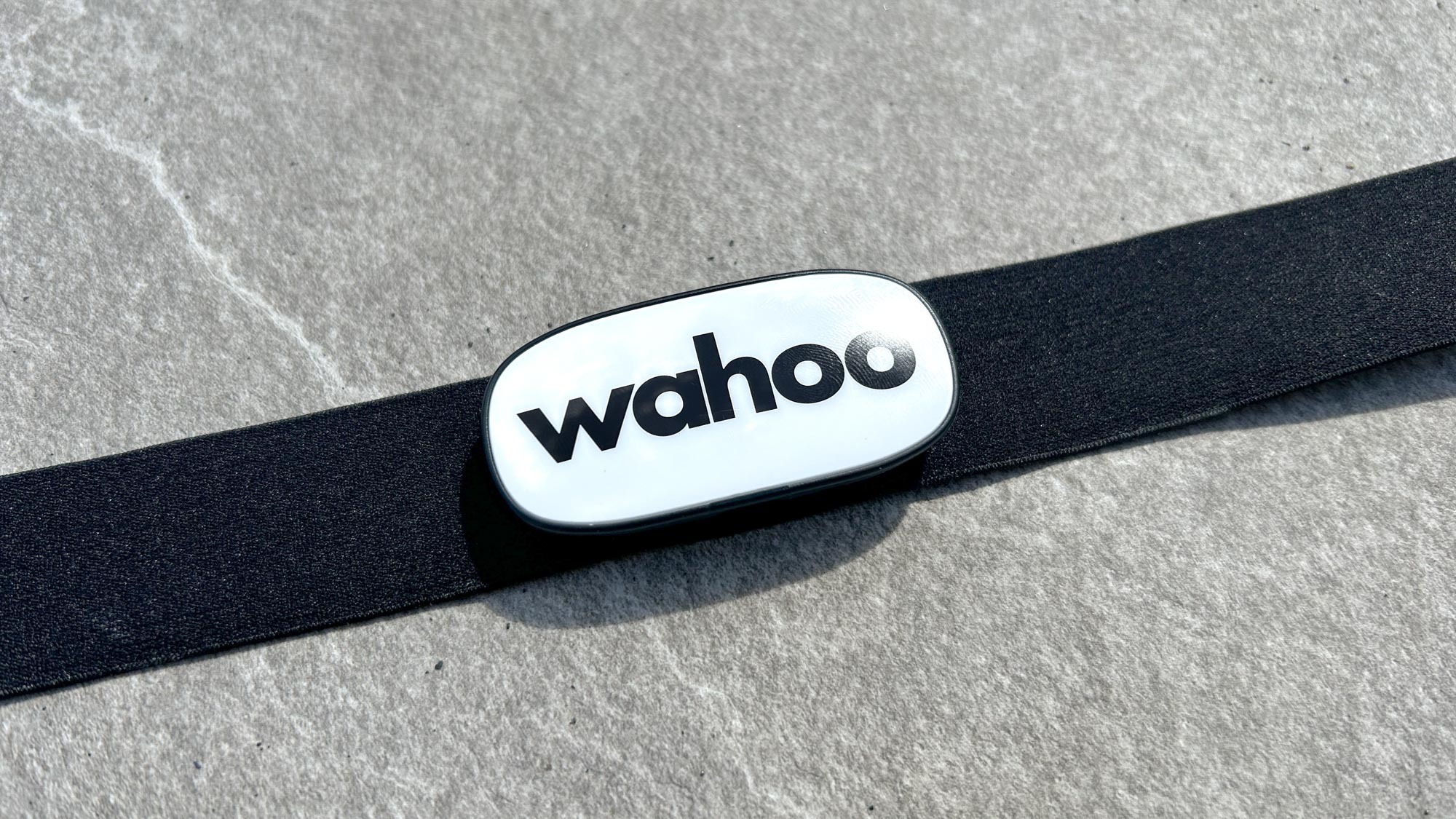
Wahoo lists the battery life of the TRACKR HEART RATE as over 100 hours, or 320 days in standby mode, and my tracker has only dropped 2% after around 8 hours of training with it so far.
I find rechargeable devices tend to take longer to drop from 100% to 99% than they do from 99% to 98% and so on, but even so, Wahoo’s 100-hour claim looks within range for the TRACKR HEART RATE.
That's outstanding battery life, so the switch from using a coin battery isn’t so keenly felt, though the rechargeable battery still doesn’t last as long. The Polar H10’s coin battery will last 400 hours before it needs replacing, and the Garmin HRM-Pro Plus is listed as lasting a year assuming an hour of use a day.
Coin batteries are a little annoying to change and I have broken an HRM in the past while changing its battery, so there are pros and cons to rechargeable vs coin. I personally prefer a rechargeable battery, partly because I never seem to have a coin battery handy when I need it for my HRM.
The charging cable is the same one used for many of Shokz bone conduction headphones, including the Shokz OpenRun and OpenRun Pro.
Should you buy the Wahoo TRACKR HEART RATE?
The Wahoo TRACKR HEART RATE is an excellent heart rate monitor and if you want a rechargeable chest strap, it’s the best you can get, though there are other options. The Coospo H9Z is a cheaper alternative that’s not quite as comfortable and only offers 50 hours of battery life, but it did prove accurate in my testing.
There’s also the MyZone Switch, which is a rechargeable HRM you can wear on as a chest or arm strap. It’s a clever and accurate device, but considerably more expensive than the Wahoo TRACKR HEART RATE. If you’d rather wear an armband monitor the Coros Heart Rate Monitor has been excellent for me in testing and is also rechargeable.
If you don’t mind changing a coin battery, the Polar H9 is a cheaper alternative, while the Polar H10 and Garmin HRM-Pro Plus are more feature-rich and have on-board memory for tracking workouts, making them useful for swimming.

Nick Harris-Fry is an experienced health and fitness journalist, writing professionally since 2012. He spent nine years working on the Coach magazine and website before moving to the fitness team at Tom’s Guide in 2024. Nick is a keen runner and also the founder of YouTube channel The Run Testers, which specialises in reviewing running shoes, watches, headphones and other gear.
Nick ran his first marathon in 2016 and became obsessed with the sport. He now has PBs of 2hr 25min for the marathon and 15min 30sec for 5K. Nick is also a qualified Run Leader in the UK.
Nick is an established expert in the fitness area and along with writing for many publications, including Live Science, Expert Reviews, Wareable, Coach and Get Sweat Go, he has been quoted on The Guardian and The Independent.
